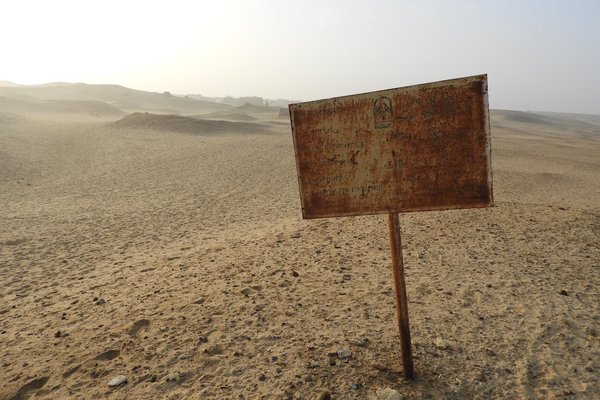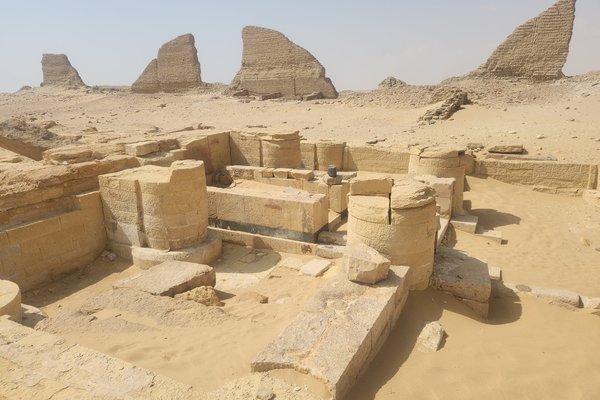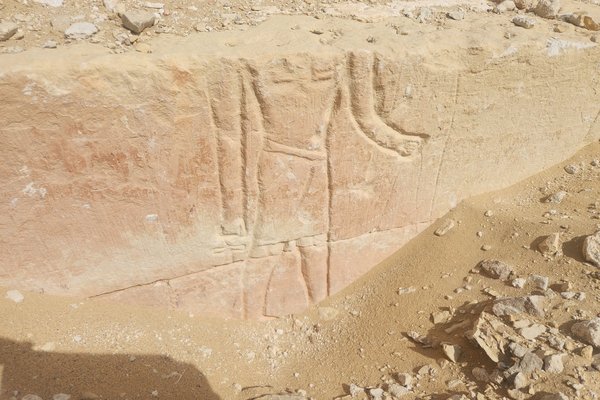Egypt
El Fayoum
The Oasis of Fayoum was one of the first places in Egypt where agriculture was practised. Cities and religious centers like Karanis and Krokodilopolis developed here (now reduced to archaeological sites).
Site Info
Official Information
- Full Name
- El Fayoum (ID: 192)
- Country
- Egypt
- Status
-
On tentative list 1994
Site history
History of El Fayoum
- 1994: Added to Tentative List
- Added to tentative list
- Type
- Cultural
- Criteria
Links
- UNESCO
- whc.unesco.org
All Links
UNESCO.org
- whc.unesco.org — whc.unesco.org
Community Information
- Community Category
- Archaeological site: Egyptian
- Human activity: Agriculture
Travel Information
Recent Connections
News
No news.
Recent Visitors
Visitors of El Fayoum
- Ali Zingstra
- bergecn
- Boj
- Carlos Sotelo
- Christoph
- Daniela Hohmann
- Errol Neo
- Evgenii
- Francky D'Hoop
- Frédéric M
- Jacob Otten
- Jarek Pokrzywnicki
- Jawnbeary
- Krzysztof B
- Martina Rúčková
- Philipp Peterer
- Roger Ourset
- Roman Bruehwiler
- Solivagant
- Szucs Tamas
- Thomas Buechler
- Vanessa Buechler
- Westwards
- Wojciech Fedoruk
Community Reviews
Show full reviews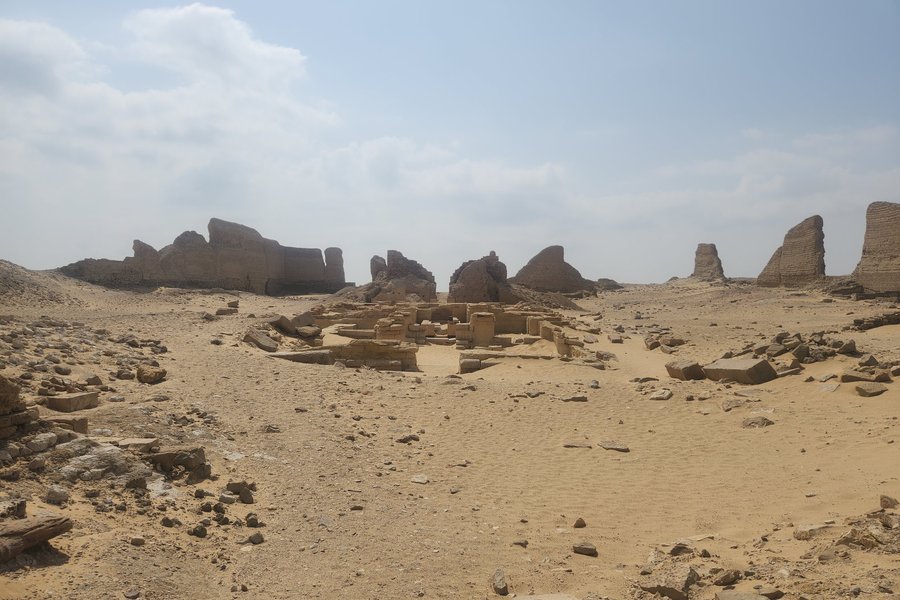
During my trip to Egypt in February and March 2025, I spent three nights at the Zad El Mosafer guesthouse in Tunis in the Fayoum and Lake Qarun region. I used Tunis as a base to visit Wadi Al-Hitan, Gebel Qatrani, and Soknopaiou Nesos. I organized all these activities through my guesthouse. What's more, they also arranged transport to Alexandria, with stops at the monasteries of Saint Pishoy and Saint Macarius the Great and Abu Mena.
On my second day in this region, the excursion organized via my guesthouse took us to the north shore of the lake. I had requested an excursion to Soknopaiou Nesos, the petrified forest, and the quarries of Gebel Qatrani. I was again with the driver who had accompanied me the day before to Wadi Al-Hitan, but this time we were sharing the vehicle with a second guide and a Russian tourist who was also able to act as interpreter, as she spoke both Arabic and English. As was the case on several occasions during my trip to Egypt, the excursion organized and negotiated with my guesthouse did not go according to plan.
We began with a visit to the ruins of Soknopaiou Nesos. A guard showed us the site and asked for a tip as we finished the tour. The site is large, but contains few particularly interesting remains. All that remains are the ruins of brick buildings. Some walls, however, are incredibly high. The guard showed us a bas-relief …
Keep reading 0 comments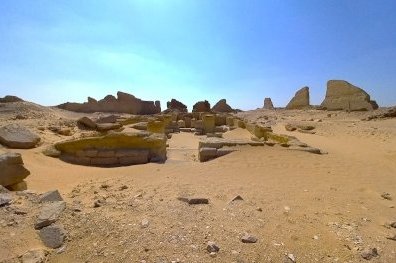
Of the five components of this proposal, I saw only two – Karanis and Soknopaiu Nesos. From the research I did, it seems that Qasr Qarun is still worth visiting, but there is not much left to see in Theadelphia.
Karanis is once quite a large village settled in the times of the Ptolemaic and inhabited in Roman times, overlooking the oasis of Fayoum. It is located on the road from Cairo to Wadi Al-Hitan, so at least a few travelers may have passed by unknowingly. To this day, mainly the ruins of two temples have remained here, the residential buildings are completely ruined. The place is unattended – although there is a center for visitors, you can see that it has not been renovated since its inception, that is for some 30 years. Our local guide showed us an ancient public bath where rubbish was piled up. Next to it is a rather weak museum (but with a wonderfully preserved mummy with a coffin portrait in the Greek style).
Then it was a little better – we went to the Lake Qarum National Park, in its northern part. We paid $ 5 per person for admission and went to the ancient village of Soknopaiu Nesos or in Arabic Dimah Al-Siba (see photo). The village was settled in the times of the Ptolemaic, in the 3rd century BC and its name comes from the god Soknopaios (as you can guess, the name is Greek rather than Egyptian). …
Keep reading 0 comments
